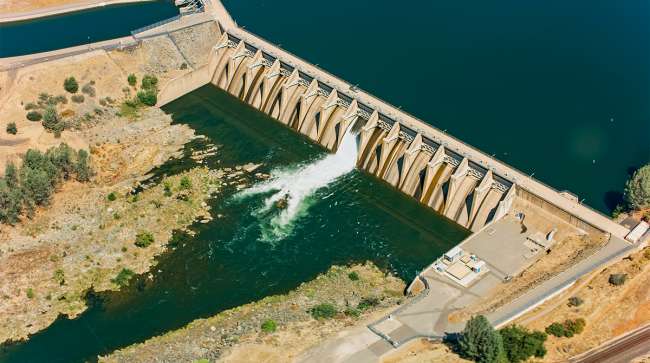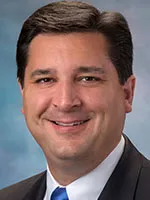Senior Reporter
House Committee Approves WRDA

[Stay on top of transportation news: Get TTNews in your inbox.]
A bill to help advance commercial waterway infrastructure projects and promote supply chain efficiency was recently approved by a committee in the U.S. House of Representatives.
The Transportation and Infrastructure panel on June 26 delivered bipartisan backing to its version of the biennial Water Resources Development Act. WRDA 2024, led by senior Republicans in the chamber, will be scheduled for floor consideration over the coming weeks.
The bill would aim to improve supply chain operations through improvements at ports, dams, waterways, canals and locks. The Army Corps of Engineers is central to the construction and maintenance of these projects. WRDA also would reauthorize the Federal Emergency Management Agency’s national dam safety program, and it updates aspects of an environmental permitting system. Overall, it would authorize 160 feasibility studies.
“Safe and reliable water infrastructure plays a central role in keeping our economy and supply chain moving while also protecting life and property. That’s exactly what this bill provides, and that’s why WRDA delivers,” committee Chairman Sam Graves (R-Mo.), the bill’s manager, said following the bill’s bipartisan approval. “This bill also makes common-sense reforms to streamline project development processes at the [Army] Corps and empower local, nonfederal project sponsors, which will allow water resource projects to get done faster and at a lower cost to taxpayers.”
“And with current and expected flooding along the Missouri River,” Graves continued, “this legislation couldn’t be more timely for my constituents in Northern Missouri.”

Rouzer
This bipartisan legislative package improves our nation’s ports and harbors and inland navigation networks, strengthens U.S. and international commerce, and will help improve protection of communities during national disasters,” added Rep. David Rouzer (R-N.C.), chairman of the Water Resources and Environment Subcommittee and WRDA’s co-lead sponsor. “The provisions of this bill touch every aspect of our water resources across the country, positively impacting the very way of life for every American. I look forward to its passage on the House floor in the coming weeks.”
In expressing bipartisan support, the panel’s top Democrat, Rep. Rick Larsen of Washington, explained the bill “will build on a decade of work to strengthen flood control, wastewater and stormwater infrastructure, keeping people healthy and communities protected. Critically, WRDA 2024 will help communities increase resiliency in the face of climate change.”
“Congress is one step closer to setting the policies and creating the programs that provide our nation with flood control, environmental improvements and maritime transportation,” added Rep. Grace Napolitano (D-Calif.), ranking member on the subcommittee.
The panel’s action came shortly after the Senate Environment and Public Works Committee advanced its version of the water infrastructure bill. EPW Chairman Tom Carper (D-Del.), WRDA’s co-lead sponsor, said he expects WRDA to reach the Senate floor relatively soon. Its consideration has not been scheduled.
Want more news? Listen to today's daily briefing above or go here for more info
The Senate bill would authorize 81 feasibility studies and eight new or modified construction projects. According to background information the EPW panel provided, “This bill directs the [Army] Corps to expedite the completion of several ongoing studies and projects. The bill also creates and modifies certain environmental infrastructure authorities of the Corps that address water and wastewater infrastructure needs in communities across the country.”
“This year’s reauthorization of the Water Resources Development Act directs the Corps to construct critical water infrastructure projects and continue vital flood risk management and ecosystem restoration programs — all while making our communities more resilient to extreme weather and creating good-paying jobs,” Carper said in May. “I look forward to the work ahead to get this important legislation to the president’s desk.”




